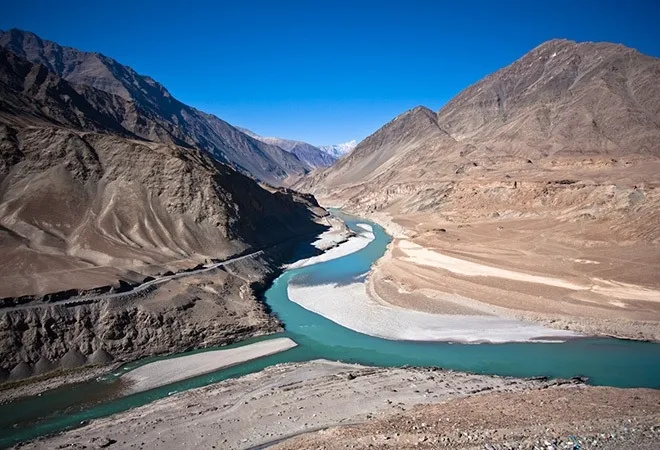How has India upheld the Indus Waters Treaty for 65 years despite numerous provocations from Pakistan?

Synopsis
Key Takeaways
- India has upheld the Indus Waters Treaty for 65 years.
- Pakistan is accused of spreading misinformation.
- India emphasizes the need for treaty modifications.
- Recent terror attacks have escalated tensions.
- International law is being leveraged in this dispute.
New Delhi, May 8 (NationPress) Criticizing the misinformation spread by Pakistan regarding the suspension of the Indus Waters Treaty (IWT) after the tragic terror attack in Pahalgam on April 22, which led to the death of 26 innocent civilians, India stated on Thursday that Islamabad has consistently ignored New Delhi's multiple requests for negotiations to amend the 1960 agreement.
Foreign Secretary Vikram Misri highlighted that there have been significant changes in the circumstances surrounding the establishment of the IWT, necessitating a reassessment of treaty obligations. Over the past 18 to 24 months, India has engaged with Pakistan, sending various notices requesting discussions on treaty modifications. For more than six decades, India has faithfully adhered to the treaty, even during periods when Pakistan initiated several wars against us,” Misri remarked during a media briefing in New Delhi regarding Operation Sindoor.
Prime Minister Narendra Modi has reaffirmed India's steadfast commitment to combat terrorism and its sponsors decisively, with the Indian government taking urgent actions against Pakistan in light of the Pahalgam tragedy.
By suspending the Indus Waters Treaty, India has skillfully leveraged international law to pursue its long-standing goal of halting Pakistan's support for terrorism, reiterating its position that blood and water cannot coexist.
“Pakistan has been the one violating the treaty, intentionally constructing legal barriers that impede India from exercising its rightful claims over the Western rivers. Any projects India proposed on both the Eastern and Western rivers—permitted under the treaty—were consistently contested by Pakistan, obstructing our legitimate water usage,” Misri asserted on Thursday.
India has formally notified its Pakistani counterpart regarding the suspension of the IWT, citing significantly changed population demographics, the urgent need for clean energy development, and revised assumptions about water sharing as fundamental reasons for this action.
“Pakistan has not responded to our calls for negotiations to reassess treaty obligations. The landscape has transformed. This treaty was established based on engineering practices from the 1950s and 1960s... Technological advancements must be considered,” Misri emphasized, countering the false narratives from across the border.
India maintains that Pakistan has been revealed as a rogue state, promoting global terrorism and destabilizing the entire region. The heinous Pahalgam attack, where 26 innocent lives were taken by four terrorists, two of whom were from Pakistan, has reignited international demands for accountability against the nation fostering global terror.
Foreign Secretary Misri also cautioned Pakistan that any further escalation would be met with appropriate responses.
“If Pakistan attempts to escalate the situation, it will be met with a suitable response, placing the onus on Pakistan to decide,” Misri stated.
Misri condemned the misinformation targeted at India following the brutal Pahalgam terror attack, asserting that the initial escalation came from Pakistan on April 22 and that the Indian Armed Forces are merely responding to these provocations.
“The claims regarding targeting the Neelum-Jhelum dam project in Pakistan-occupied Kashmir are entirely fabricated and a blatant falsehood. India has solely targeted terrorist infrastructure... If these allegations serve as justifications for attacking similar Indian infrastructure, Pakistan will bear full responsibility for the inevitable repercussions,” he concluded.









